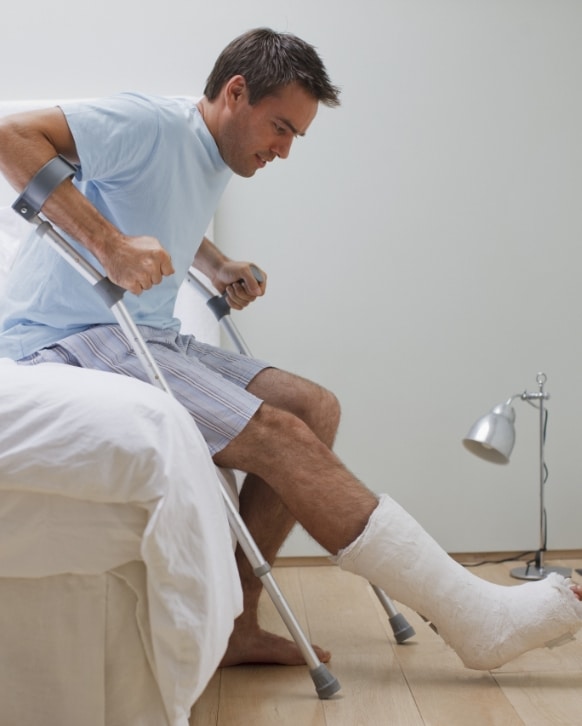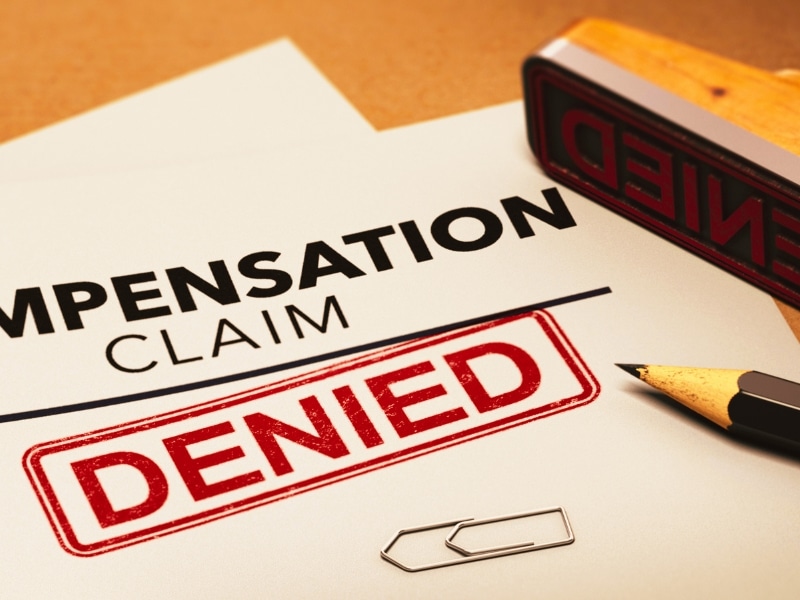
Why Do You Need a Personal Injury Lawyer in Bloomington?
Although most people and businesses in Bloomington, Illinois are kind, courteous, and honest, the same cannot always be said for the insurance companies that handle personal injury claims in our community. If you are injured by someone else’s negligence, and you file a personal injury, workers’ compensation, or medical malpractice claim to recover damages, you can expect to be met with a variety of challenges that are designed to make your recovery difficult.
Insurance companies who service our area are notorious for:
- Minimizing injuries and losses
- Disputing fault or liability
- Unnecessarily delaying injury claims
- Denying valid personal injury and workers’ compensation claims
With tactics like these, and experienced professionals working against you, it might be tempting to accept a settlement amount that is much lower than your case is worth. You might even consider abandoning your claim altogether.
Fortunately, our personal injury lawyers are here to level the playing field. Our decades of experience handling injury cases and civil lawsuits on behalf of Bloomington residents has enabled us to identify and counter the unscrupulous ways of insurance companies. As a result, our law firm can help you win up to three times more than you might recover if you handle your claim on your own.
What Are Your Chances of Needing a Personal Injury Lawyer?
With a population of approximately 77,000 residents, the violent crime rate in Bloomington, Illinois is 5.12 per 1,000 residents – just slightly higher than the national median rate. If you live, work, or play in Bloomington, you have a 1 in 195 chance of becoming a victim of violent crime. While the city is safer than 29% of cities in the United States, adequate security is still a must for businesses. In 2019, 1 person was murdered, 54 were raped, 57 were robbed, and 284 were reportedly assaulted.
Motor vehicle accidents are another common cause of personal injury and death in Bloomington. While fatality crash rates are lower than those reported in Peoria, Springfield, and Chicago, accidents that cause serious injuries are alarmingly common. Drivers, passengers, and pedestrians are often severely injured or killed when they fail to wear their seatbelts, especially when someone is speeding, driving distracted, operating a vehicle while impaired, or driving recklessly in a work zone.
The most dangerous intersection in Bloomington, with 18 accidents in 2019, was Empire Street and Veterans Parkway. Others include Morrissey Drive at Veterans Parkway, Oakland Avenue and Veterans Parkway, Clearwater Avenue and Veterans Parkway, and Washington Street at Veterans Parkway.

Types of Cases Our Personal Injury Lawyers Handle
At Strong Law Offices, our personal injury lawyers handle the following types of cases. We are:
Workers’ Compensation Lawyers
Were you injured in a work-related accident in Bloomington, Illinois? You may be entitled to compensation to help you pay for your medical treatment and replace a portion of your lost wages. Whether you’re a healthcare worker who was injured while working at Carle BroMenn Medical Center or OSF St. Joseph Medical Center, a transportation worker who was in a work-related accident, or another type of worker who was hurt on the job, our Bloomington workers’ compensation lawyers can help ensure you receive fair compensation.
Personal Injury Lawyers
The Bloomington personal injury lawyers at Strong Law Offices handle a wide range of cases that arise from accidents in our community. If you were injured in a slip and fall, hurt in an animal attack, or harmed by a defective product, we can help. Our law firm will determine the value of your personal injury claim, identify liable parties, and pursue compensation for medical bills, lost wages, and pain and suffering on your behalf.
Car Accident Lawyers
Did you suffer injuries in a crash in Bloomington? Whether your collision was caused by a drugged or drunk driver, distracted driving, or another careless driving behavior, our law firm will make sure the at-fault party is held accountable for your losses. Our car accident lawyers can help you file a personal injury claim against the other driver’s insurance company to recover compensation for your lost wages, medical bills, physical pain and suffering, and emotional trauma.
Motor Vehicle Accident Attorneys
If a motor vehicle crash caused you harm in Bloomington, Illinois, you may be able to sue an at-fault driver, a vehicle or parts manufacturer, a trucking company, or another third party who contributed to your accident. When you hire our Bloomington motor vehicle accident attorneys to handle your case, we will identify all sources of recovery to maximize the compensation you receive.
Medical Malpractice Attorneys
At Strong Law Offices, our Bloomington medical malpractice attorneys are not afraid to stand up for patients when doctors, nurses, or hospitals cause them harm. If a healthcare provider’s negligence caused you to suffer injuries, your condition to worsen, or the death of your loved one, our law firm can help you recover compensation for medical bills, lost wages, and more.
About Bloomington, Illinois
Located in the heart of Central Illinois, Bloomington is the county seat of McLean County. The city is host to a variety of cultural and entertainment options including, but not limited to: performing arts, theaters, festivals, art galleries, and even a candy factory. It is the only place in the world where beer nuts are manufactured. A booming college town, Bloomington is also home to Illinois Wesleyan University.
With its world headquarters located in the city, State Farm Insurance Company is the top employer in Bloomington, Illinois. Other top employers include electric car manufacturer Rivian, and Country Financial.
The major medical facilities in Bloomington-Normal are BroMenn Healthcare, and OSF St. Joseph Medical Center.
The McLean County Fair, often referred to as the “World’s Largest County 4-H Fair,” takes place every August in Bloomington.
Apart from Bloomington, our law firm also has offices in Peoria, Springfield, Champaign, and Chicago.
FAQs About Personal Injury Cases in Bloomington
During your free case evaluation, our lawyers will determine whether you have grounds for a personal injury lawsuit in Illinois. To make this determination, we’ll consider whether the following elements existed when your accident occurred.
- Did the defendant owe you a duty of care?
- Did the defendant breach the duty of care owed to you?
- Did the actions or inaction of the defendant cause your injuries?
- Did you suffer some type of physical or emotional injury because of the defendant’s actions or inaction?
The damages available in your personal injury case will depend on the severity of your injuries and the types of losses you suffered. Most personal injury victims in Bloomington can recover compensation for economic damages, like lost wages and medical bills, and noneconomic damages like pain and suffering. In rare instances, punitive damages will be awarded as well.
Generally, people in Bloomington, IL have just two years from the date of the incident to sue for personal injury. Exceptions sometimes apply that shorten or lengthen the time period, however. Your injury attorney will evaluate your case to determine how long you have to sue in your particular situation.
You may still be able to receive compensation for your losses if you share fault for your accident in Bloomington. As long as you’re not more than 50% at fault for your accident, you can sue the other party. Your award will be reduced in proportion with your percentage of fault.
Latest News & Articles
You have a right to submit a claim directly to the Illinois Workers’ Compensation Commission (IWCC) if your employer doesn’t report your work injury in...
If you find yourself injured in a car accident while working in Illinois, it’s crucial to understand your on-the-job car accident rights and the necessary...








